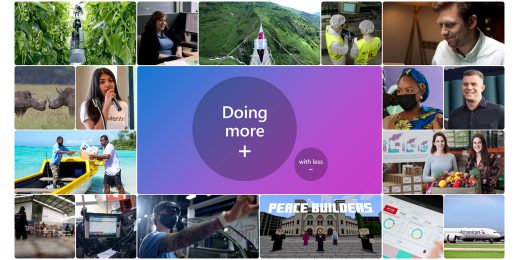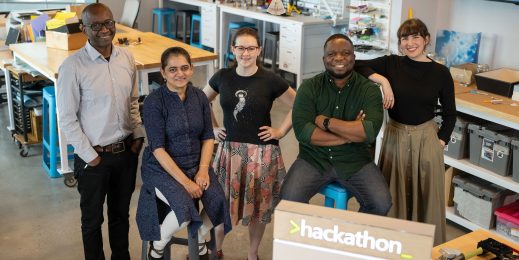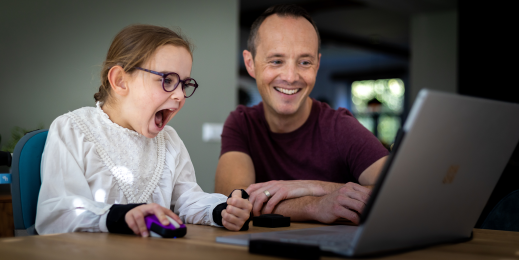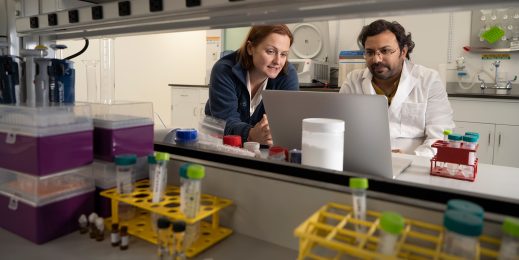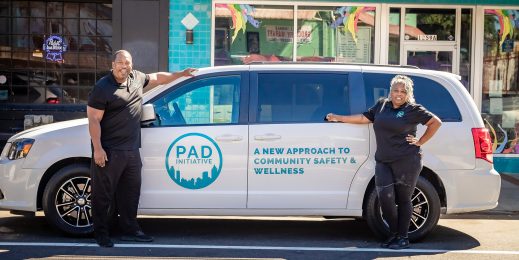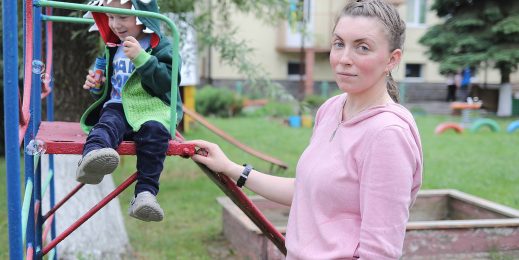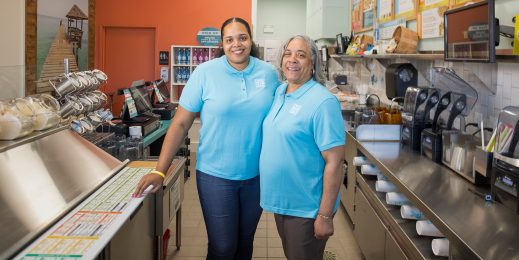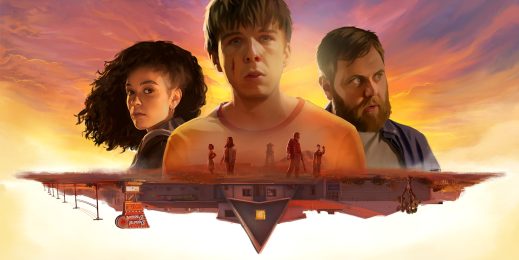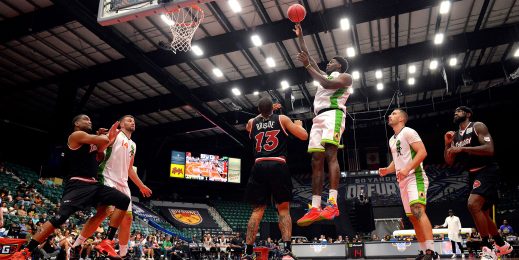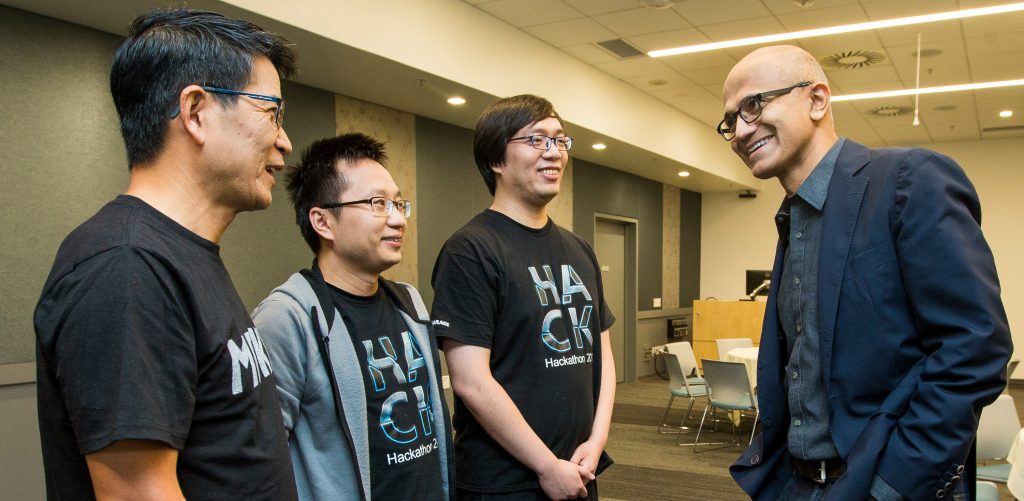
Microsoft Hackathon 2018 winning team: ‘Think bigger – and believe you can change the world’
Wei Liu was in college when he came across a website that sparked his imagination. It showed a woman holding what appeared to be a flat piece of cardboard with a three-dimensional little boy standing on it. When she moved the cardboard, the tiny virtual boy moved with it.
The example of augmented reality fascinated Liu. The year was 2003. Cellphones that had cameras were the hot buzz, and the first Xbox had just been out a little over a year. The notion of augmented reality (AR) was still little-known to most people.
Fifteen years later, Liu’s passion for AR led him to be among the 15 members of the China-based Microsoft team named as the overall winner of the 2018 Microsoft Hackathon.
“My dream is to focus on an area in augmented reality and go deeply,” says Liu, now a senior software engineer for Bing Ads in Suzhou, who believes that for success, “interest and passion are your best friends.”
We fundamentally believe as a company that anyone – regardless of their age, gender, role, geographic location or tenure at Microsoft – is capable of having a great idea.
For now, the details of the winning project are still under wraps. What can be said is that the project involves “a new paradigm we’re exploring in advertising,” says Jeff Ramos, who leads the Microsoft Garage, a program that includes the Hackathon as part of its mission to encourage all employees to take their ideas and bring them to life.
The project is “allowing us to use our artificial intelligence capabilities, our machine learning capabilities, our neuro networks – all in a way to open up new opportunities for advertisers and for the people who want to experience really relevant, meaningful ads,” Ramos says.
The winning team’s prize: The opportunity to present their project to CEO Satya Nadella.
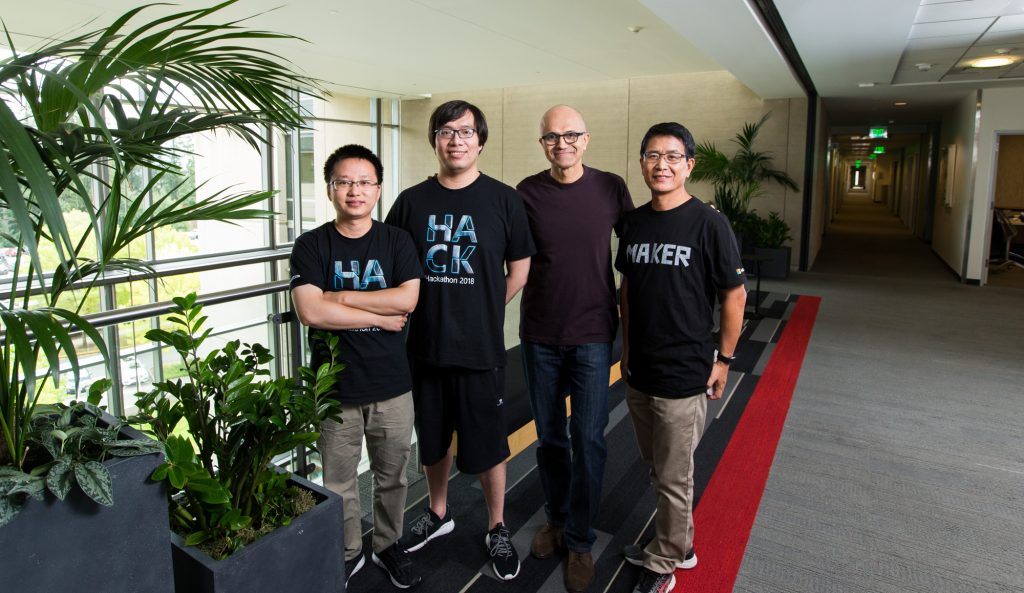
The Hackathon, a company-wide event in its fifth year, had more than 23,500 global participants this year – twice the number from the first Hackathon in 2014. Hackers teamed up on more than 5,850 projects this year, up from 4,760 projects last year.
Winning projects have led to successes, including Seeing AI, the Xbox Adaptive Controller and Learning Tools, just a sampling of the projects initially driven by a team’s spark of passion. Motivation to participate in what is now the world’s largest private hackathon often comes from employees with family members or friends who are coping with various physical hardships, and who can be helped by technology.
The Hackathon began – and has continued – as a way to engage employees worldwide in both a learning culture and in a growth mindset, and to encourage great ideas from people in all roles across the company.
“We’re getting better at hacking as a company, and we’re seeing a higher percentage of the projects that come out of the Hackathon that have potential business value to our company, which is exciting,” Ramos says.
While many people think hackathons are “just for dreaming up flying cars or smart toasters,” he says, many of the hackers say having fun is the No. 1 reason why they participate.
The winning team’s project “is a product that is a natural for Microsoft,” Ramos says. “It leverages our commitment as a platform and productivity company, and it capitalizes on something that we feel is unique to us.”
It’s “also an idea that this team has a passion for,” he says. “There are a lot of great ideas in the Hackathon – and so, when a great idea also meets up with a great team of people, that’s a nice combination as well.”
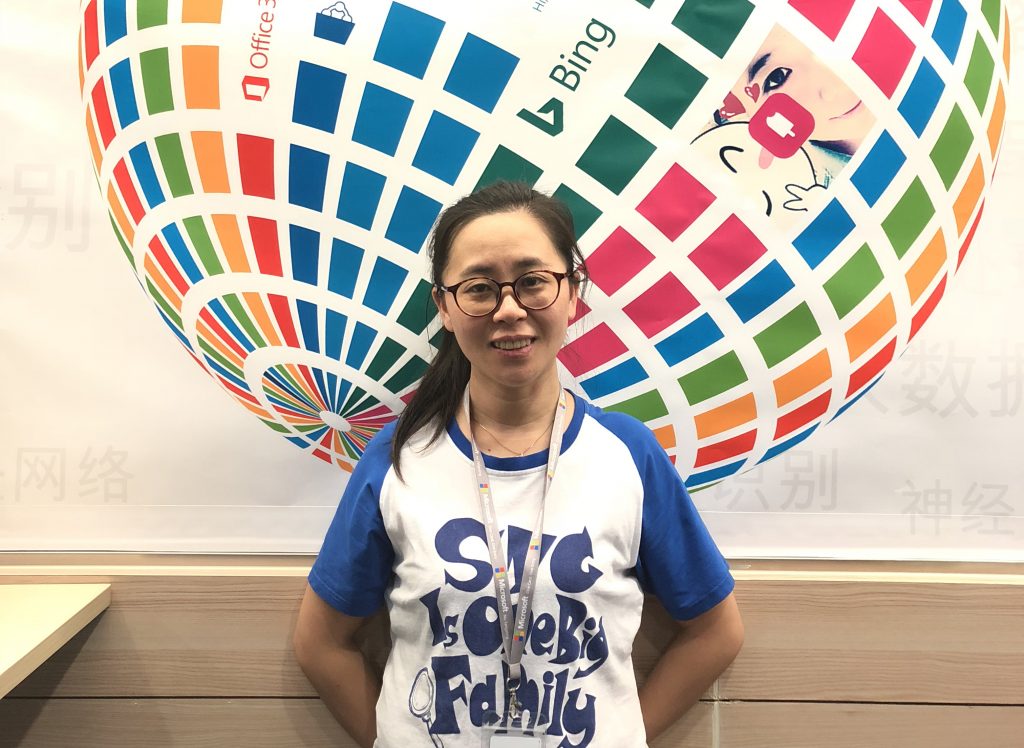
Jessica Zhang, a member of the winning team, says the aspect of the Hackathon she likes the most is seeing “a lot of ‘crazy’ ideas finally come true. And the Hackathon sprint can bring the breakthrough-based innovation mindset into our daily work.”
Zhang, a manager at the Software Technology Center Asia Bing Ads team, says she is inspired to do her best work because of her 3-year-old daughter. “I always want to be a model for her, a person she will be proud of,” Zhang says.
When she was a child, Zhang says she dreamed of being a scientist or engineer someday. “And my dream finally came true. I’m now working as a computer scientist and software engineer at Microsoft to make the world a better place.”
Edward Lai, also on the winning team, is a senior development engineer for the Bing Ads platform. Working with his Hackathon teammates – people who are passionate and energetic and smart – and achieving a “growth mindset” are among the things he finds most valuable about the Hackathon, Lai says.
The event “requires us to think in very different ways,” he says. “It’s always very hard from the beginning, but we grow a lot once we’re really involved in it.”
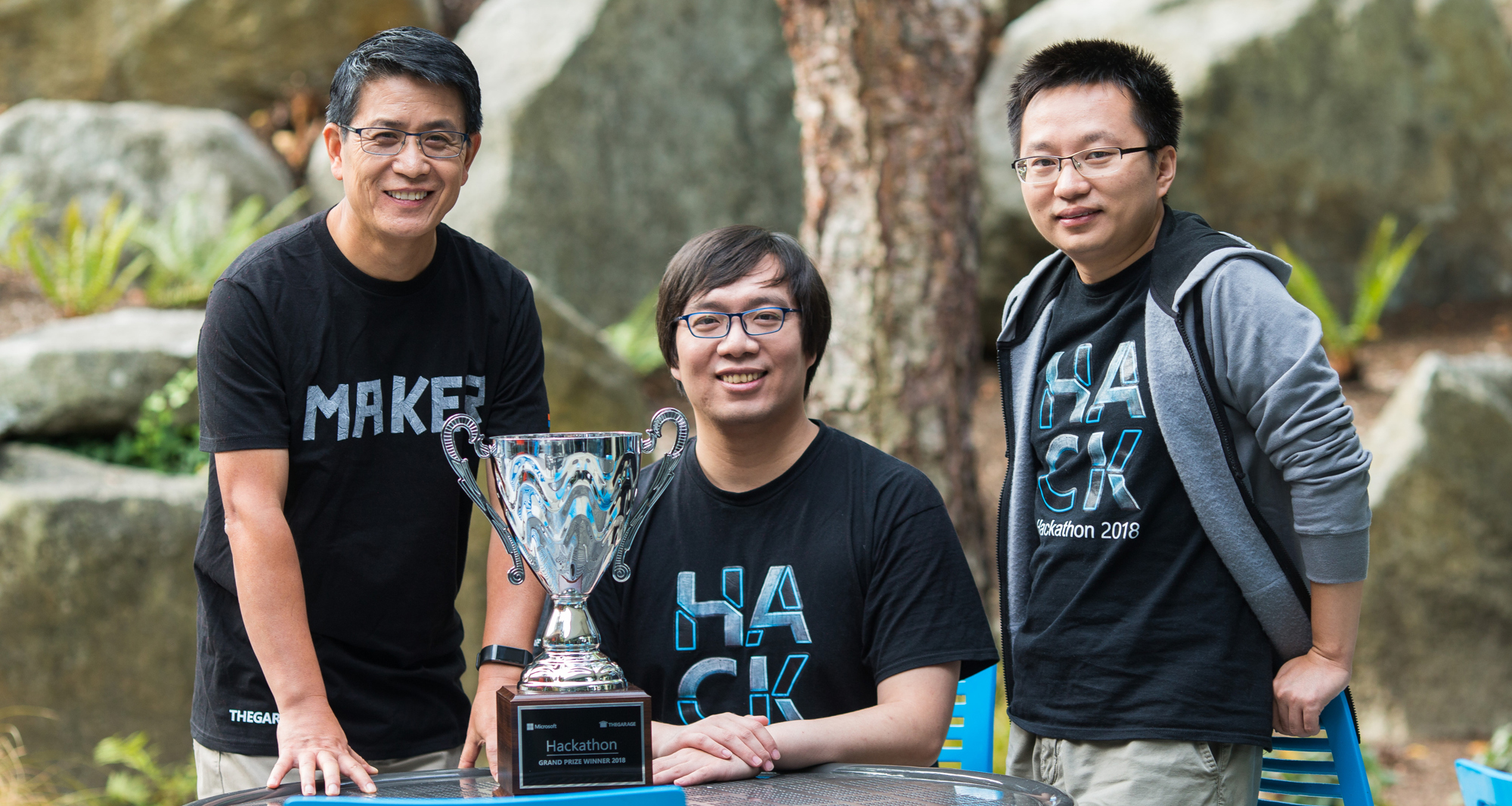
Fellow team member Yuting Gu says the best part of the Hackathon is having “a group of people who are gathered to work on an idea together, who are fully dedicated to get the project done.”
As is true of many Hackathon teams, members often don’t normally work on the same teams, or even in the same countries. This year, 57 percent of hackers were based outside of the Puget Sound area.
“We may work in different areas and for different teams, but with the Hackathon, we are aiming at the same goal, and we inspire each other during the project,” says Gu, a software engineer for the Bing Ads accounts and billing team.
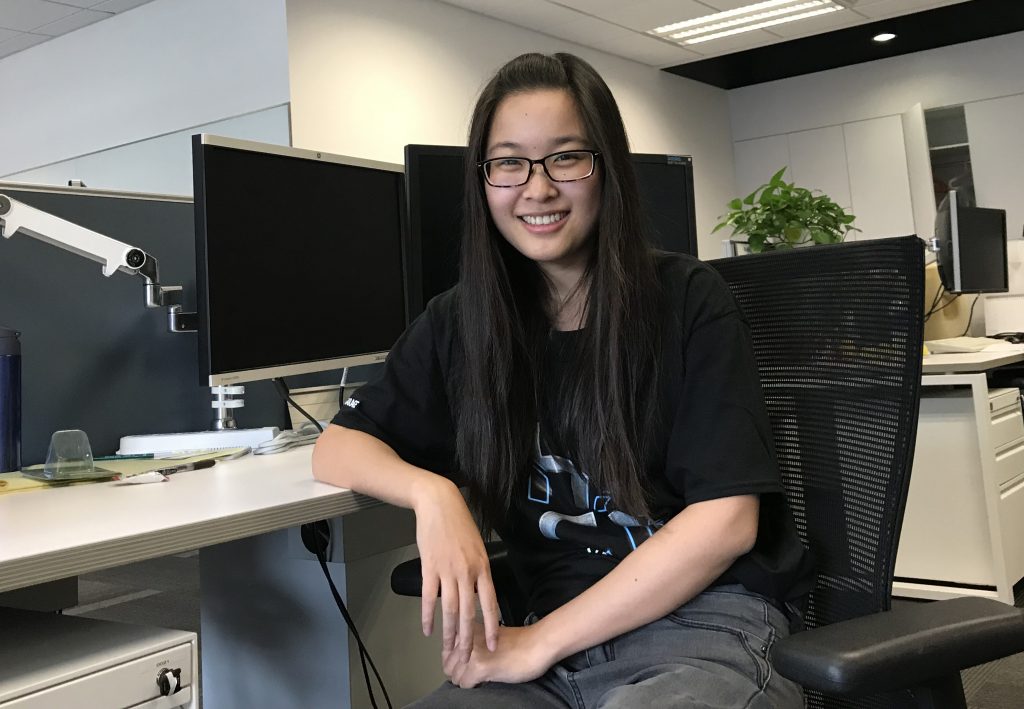
Other winners included project teams that stepped up to solve challenges issued by 15 senior leaders, as well as winners of 37 local science fairs worldwide and a dozen special topic hacks.
Ramos says it’s great to see so many of Microsoft’s talented people – world-class researchers, highly skilled software engineers and people working in countless other fields, take part in the Hackathon each year.
“We fundamentally believe as a company that anyone – regardless of their age, gender, role, geographic location or tenure at Microsoft – is capable of having a great idea,” he says. “That’s why we work very hard to give everyone a platform to share them.”
Lead image: Microsoft CEO Satya Nadella, right, meets with, from left, Greg Sun, Wei Liu and Edward Lai on Thursday, Sept. 13, 2018. (Photo by Dan DeLong)






